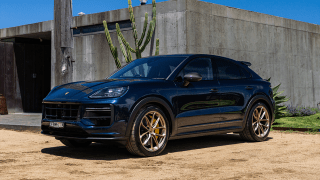
Everything you need to know about EV incentives and taxes in Australia
- Electric Cars
- Hybrid Cars
- EV Advice
- EV
- Electric
- Electric Cars
- Hybrid
- Hybrid cars
- Plug-in hybrid
- Hydrogen
- Family Cars
- Small Cars
- Sports cars

If there's an area where Australia has been lagging behind the rest of the first world, it would be in in its approach to climate change, and the environment generally.
CarsGuide isn't here to take sides in the debate over greenhouse gases and renewable energy, but whichever way you cut the deck, Australia's legislators have been dragging their heels on the subject, either figuring the electric car revolution wasn't going to happen, or – more likely – that admitting as much would cost votes.
That approach has led to a situation where this country's electric vehicle infrastructure is hopelessly inadequate and – rightly or wrongly – our entire attitude to climate change and incentives to embrace EVs has been at complete odds with much of the rest of the developed world. In fact, when it comes to electric vehicle incentives Australia is really dragging the chain.
Read more EV advice
That looks to have changed somewhat, recently, with the election of the Albanese Federal Government which does seem to profess some commitment to an EV future.
Central to that is a new fuel standard for ICE cars which would make them cleaner but also, likely more expensive. There's talk of a complete phase out of conventional cars, although the timeline has yet to be confirmed. But it's the subject of electric car incentives Australia-wide that is of most interest to would-be owners right now.
Typically, the approach to an EV future is fragmented with the Federal government taking its own approach, and the increasingly fractured states and territories drawing up their own agendas and guidelines for what will happen next.
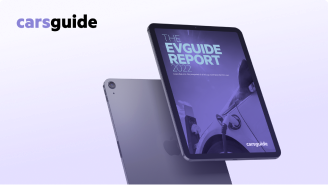
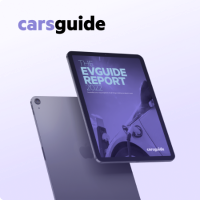
Download the EVGuide Report, 2022
Australia's one-stop snapshot of all things relating to electric cars.
Probably the two main areas where Australia is most at odds with the remainder of the planet is in EV infrastructure investment and EV incentives; the latter being the type of government funded EV rebates, savings and bonuses likely to entice new-car buyers into an EV as their next car.
In some cases, the states have applied what appear to be punitive charges on anybody attempting to buy and run an EV, making those states some kind of laughing stock in countries with more enlightened approaches.
And is that any wonder when you look at countries such as Norway, where government subsidies for electric cars mean EVs are actually cheaper to buy than ICE cars.

Heck, the Norwegians have even legislated that an EV can never be charged more than half the parking, tollway or ferry costs levied on a conventionally powered car. Clearly, the Norwegians are a bit more serious about an EV-led future than we are here.
So, where do Australian EV buyers stand? Let's start with the Federal government incentives for electric cars. Rather than any firm cut-off date (despite plenty of 'commitments') for the end of ICE cars or even a target for the uptake of electric vehicles, the Feds instead have waived the Fringe Benefits Tax (FBT) and import taxes from new EVs that cost less than the Luxury Car tax (LCT) or $84,916.
There's also a federal commitment to an almost-$300 million 'Driving the Nation' fund (that sounds like an episode of Utopia) which includes almost $40 million for new charging infrastructure on major routes.
But as the post-Covid-emboldened states and territories serve up their own plans, the scene becomes very murky. So let's look at the EV rebates by state:
NSW
The EV incentives NSW offers start with a scheme for the purchase of EVs, consisting of a $3000 rebate for the first 25,000 EVs and Hydrogen Fuel Cell (HFC) vehicles sold after September 1, 2021.
That's alongside a stamp duty reduction on EVs costing less than $78,000 which could take the total saving to more than $5000.
But just to prove that a government can give with one hand and take away with the other, from July 1, 2027, all EV owners will have to pay a road-user charge of 2.5 cents per kilometre (indexed to CPI).
Oh, and if EV and FCEV sales reach 30 per cent of total new-car sales before that 2027 date, the road-user charge will be implemented at that point.
For a car travelling 15,000km a year (the average) that road-user charge will take a further $375 from car owners' pockets. Seen by critics as a tax on electric cars, the road-user charge aims to recoup the money that will ultimately be lost in fuel excise.
Victoria
In Victoria, the State Government's road-user charge of 2.6 cents per km has been described as the most backward-looking EV policy on the planet.
At a time when government incentives for electric vehicles are the hot-button topic, the Victorian stance seems awkward at best.
Right now, that law is the subject of a court challenge on the basis that a State can't impose an excise. But even if that challenge succeeds, count on the Victorian government to rephrase the legislation to re-impose the same charge under a different name.
More positive moves include the $3000 ZEV (Zero Emissions Vehicle) Subsidy which applies to EVs or FCEVs bought new that cost less than $68,740.
The catch is you must buy the vehicle from a registered dealer to apply for the kick-back (and not all are). Other measures include a $100 discount on annual registration fees and reduced stamp duty for zero-emission vehicles.
More expensive EVs and FCEVs in Victoria also skip the state-based Luxury Car Duty which saves up to $1000 on a $100,0000 car and $14,400 on a $300,000 car.
But since this is separate from the Federal LCT, it's a tax no other state's residents have to pay in the first place. So it hardly puts Victoria at the forefront of anything other than over-taxing.

Queensland
Queensland is offering a $3000 rebate on new EVs but only if they cost less than $58,000, so it's less of a handout than other states manage.
EVs in QLD also attract a lower stamp duty of two per cent up to $100,000 (versus between three and six per cent for ICE vehicles). There's no registration discount but also no word yet on a road-user charge.
South Australia
SA is another state to offer electric vehicle rebates; again, a $3000 rebate for EVs under $68,750. But that will only apply to the first 7000 examples sold after October 28, 2021.
As of last month, there were still more than 6000 subsidies up for grabs. But there‘s also a registration fee-free period of three years for EVs registered up to June 30, 2025.
The state was to offer a $2000 subsidy on home fast-chargers, but that's now been ditched in favour of concentrating on the state's public charging network.
Tasmania
The nation's state with the highest renewable energy ratio, Tasmania could be expected to be leading the way here. Not so, unfortunately.
But if you do live in Tassie and want an EV, maybe the best advice is to get in quick. That's because Tas is waiving stamp duty on brand new EVs, but only until July 1 this year. On a $50,000 car, the saving from that would be $2000.
There's no registration relief for private EV owners, but Tassie offers two years free rego for rental cars, backing up the island's tourist destination status.

Western Australia
The electric car incentive Western Australia offers is actually one of the best. Despite being such a big state with arguably less to gain from EVs, WA's EV rebate is slightly more generous than most other states, with a $3500 rebate for new EVs (and any other zero-emissions vehicle) under $70,000.
The offer is for the first 10,000 vehicles sold or until May 10, 2025 (whichever comes first). But that's about it for EV buyers in the west, with no stamp duty relief or registration discount.
Northern Territory
The NT doesn't offer an EV rebate, but it does offer buyers a $1500 stamp duty reduction on all EVs bought between July 2022 until July 2027.
Interestingly, the offer extends to brand-new and second-hand EVs. The deal is bolstered with free registration on EVs over the same time period.
ACT
The Australian Capital Territory is arguably leading the way in Australia with its range of bonuses and discounts on offer. Those start with an interest-free loan to EV purchasers, and extend to a stamp-duty waiver on EVs.
But it gets better: The ACT is also offering two years of free registration for EVs bought before June 30 next year and an ongoing registration discount for EVs purchased before May 1, 2021.
The ACT has been devising incentives since 2014 (long before the other states) and if you look at the mix of EVs registered in the ACT, the strategy appears to be working.







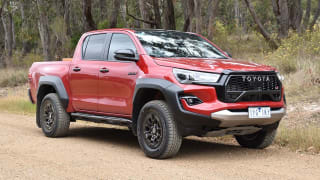
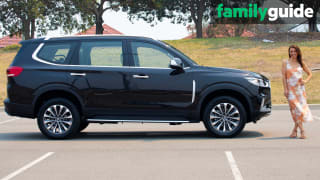
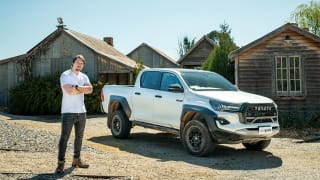
Comments